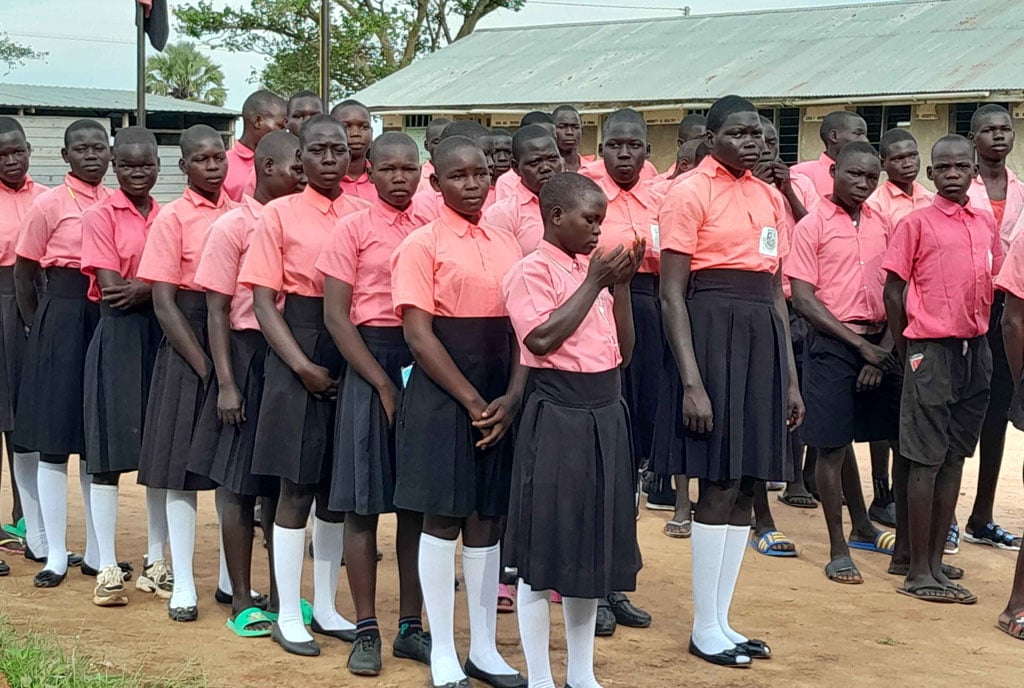Rewrite examination rules and regulations

PLE candidates of Rwotobilo Primary School praying as they wait to be checked and enter an examination room to write their first exam on November 8, 2022. PHOTO/JOSEPH KIGGUNDU
What you need to know:
- The issue: Exam rules.
- Our view: It is wrong for Uneb officials to punish candidates and their parents for matters beyond their control.
A 14-year-old girl taking Primary Leaving Examinations (PLE) at Wakiso Junior School died on Wednesday after suddenly falling ill in the examination room. Winnie Nabukenya succumbed to a brain tumour.
On Wednesday, 27 pupils of St Christine Primary School in Kakumiro District missed the Maths paper after they arrived one hour and 16 minutes late. The pupils were forced to walk about 15km to Uneb centre after the school director failed to transport them to the venue. They pleaded with Uneb officials but the pleas fell on deaf ears.
Other pupils have for years been forced to write final exams from hospitals. Why subject candidates to this torture? Some have died in the process. There are also several cases involving unscrupulous head teachers but the board does not seem to care. The scourge of this scandal negates the maxim that the first rule of law is to protect the innocent.
Uneb was established by an Act of Parliament in 1983, Cap 137. Last year, a new law: The Uneb Act, 2021, repealed the old Act and introduced what they called “major reforms”. However, the so-called reforms did not address the plight of bedridden candidates and others denied exams on flimsy grounds.
The preoccupation was on broadening offences (7-13), penalties (six months in prison to five years) and changing executive secretary to executive director.
In the new law, Parliament empowered the board to conduct primary, secondary, and such other examinations as it may consider desirable in the public interest; make rules regulating the conduct of examinations and for all purposes incidental thereto and appoint supervisors and invigilators etc. to assist in the conduct of examinations.
Within the confines of these broad functions, there is nothing that stops Uneb from drafting reasonable exam rules and regulations. There must be two or three sets of exams at all levels to cater for distressed candidates with exceptional circumstances. The board chairperson should task her executive and exam directors to draft new rules and regulations.
Enforcing examinations rules in a mechanistic way disregards context and clutters the spirit of examinations policy which was never intended to punish wounded candidates. Ignoring or rejecting appeals of candidates with a good cause, is archaic and uncalled for. If the fear is about compromising integrity of exams, let the board in consultation with the minister and Parliament, ingrain the exceptional circumstances clause in the context of the prevailing societal condition.
It is wrong for Uneb officials to punish candidates and their parents for matters beyond their control. The laws don’t function in a vacuum. It is important to understand the fundamental purpose of these laws and how they impact the people. A robust legal system serves as the foundation of a happy and healthy society.




